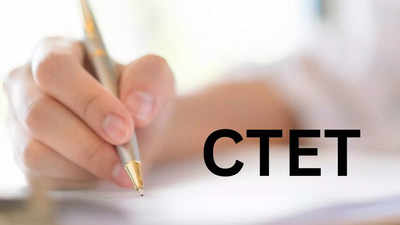
The Central Teachers Eligibility Test (CTET) Admit Card 2024 is expected to be released on the official website soon CBSE website, CTET.nic.in. Once the link is online, candidates who have completed registration can access and download their admission tickets.
Although the exact release date has not yet been announced, applicants can monitor the website for the latest updates. this CBSE CTET The 2024 exams are scheduled to be held on Sunday, December 15, 2024, replacing the original date of December 1, 2024.
The Central Teachers Eligibility Test (CTET) is a national-level examination conducted in India to determine the eligibility of candidates for the posts of teachers in central public schools. Scoring above 120 on this challenging exam can give candidates a significant advantage.
CBSE CTET 2024: Exam Pattern
CTET consists of two papers: Paper I, for candidates aiming to teach Class IV (primary) and Paper II, for candidates aiming to teach Classes VI-VIII (upper primary). Each paper is structured into the following sections −
- Child Development and Pedagogy (CDP) – Fundamentals of understanding child psychology and teaching methods.
- Language I – Typically Hindi or English, based on the candidate’s choice, focusing on language proficiency and pedagogy.
- Language II – A different language than Language I, testing similar skills.
- Mathematics – Covers elementary or advanced mathematics concepts and teaching methods.
- Environmental Studies (Paper 1) and Science/Social Studies (Paper 2) – Assess knowledge of environmental science, general science or social studies concepts, as well as pedagogical insights.
Here are 7 Strategies to Score 120+ in CBSE CTET Exam 2024
Child Development and Pedagogy (CDP)
Deepen the study of theoretical knowledge: Master key theories such as Piaget’s stages of cognitive development, Vygotsky’s social constructionism, and Kohlberg’s moral development. Practical applications of these theories by visualizing their impact on classroom situations.
Principles of inclusive education: Inclusive education is a recurring theme in CTET, and you should be well-versed in adapting instruction for different learners, such as those with different abilities.
practical teaching techniques: Emphasis on child-centered teaching methods, especially methods such as cooperative learning and differentiated teaching. This focus will help you effectively answer questions related to real-life classroom management.
Language I and Language II
Grammar and Comprehension: Strengthen grammar fundamentals and reading comprehension skills. Practice on different reading materials to improve your speed and accuracy in this section.
Language Pedagogy: Understand key principles of language learning, such as the difference between language acquisition (natural learning) and language learning (structured). Focuses on a child-centered approach to language teaching, emphasizing phonics, critical thinking and comprehension skills.
Practice teaching questions: Familiar with speech-related issues, syntaxand vocabulary teaching. This preparation is crucial because many language issues are practical applications of pedagogy.
Strengthen core math skills
Key Topics: Focus on fundamental topics such as number systems, geometry, data processing, and basic operations. For Paper II, the focus is on advanced problem-solving strategies and algebra.
Teaching Technology: Concepts can be made clearer using teaching materials (TLM). Manipulative tools such as building blocks or visual aids can help with understanding abstract concepts. Imagine how mathematical concepts can be taught interactively, as this will help answer pedagogy-based questions.
Practice visualization techniques: Mental arithmetic and visualization techniques are powerful tools. They help you solve problems quickly while minimizing the time spent on complex calculations.
Environmental Studies (Paper 1)
Environmental Science: Delve into topics such as biodiversity, pollution and climate change. Be prepared to explain these in a classroom setting, as questions will often explore knowledge and teaching methods.
social studies integration: For Paper 2 candidates, study important historical events, geographical concepts and basic civics education. Explore these topics from a pedagogical perspective and consider how to convey them engagingly to students.
Interdisciplinary connections: Practice making interdisciplinary connections, such as linking environmental concepts to historical events. CTET questions typically test your ability to teach comprehensive research, especially real-life applications.
Learn time management and wisdom question selection
Efficient time allocation: Allocate a set time for each section and stick to it. For example, complete the CDP and two language sections in the first half to allow more time for math and EVS/social studies that require calculations and analysis.
Question options: Start with a question that you feel confident building momentum. Save more complex or uncertain questions for a second pass, helping you manage your time without sacrificing accuracy.
exclude guess: There are no negative marks in CTET so it is beneficial to attempt all the questions. However, guesswork should be educated; rule out unlikely options before choosing.
Reinforcement exercises mock test and previous papers
Recognition mode: CTET often includes repetitive concepts and question types. Reviewing past papers can help you identify these trends, making it easier to anticipate and prepare for problems that may arise.
Regular practice: Regularly simulate exam conditions through practice timed full-length practice tests. This can help you adjust to the pressure and pace of the actual exam.
Self-Assessment and Review: After each practice test, review your answers, especially the errors. Pay attention to common mistakes and modify these areas specifically to avoid repeating them on test day.
Stay organized and stay positive
Create a study plan: Organize your study time effectively by setting a timetable, assigning specific days or time periods to different subjects. This consistency helps avoid last-minute stress.
Positive reinforcement: Practicing mindfulness techniques or brief meditation sessions can help you stay focused and reduce stress. It is crucial to maintain a positive and positive attitude, especially as the exam date approaches.
self assessment: Reflect on your progress each week. Identify your strengths to build confidence and identify your weaknesses for more focused practice.







